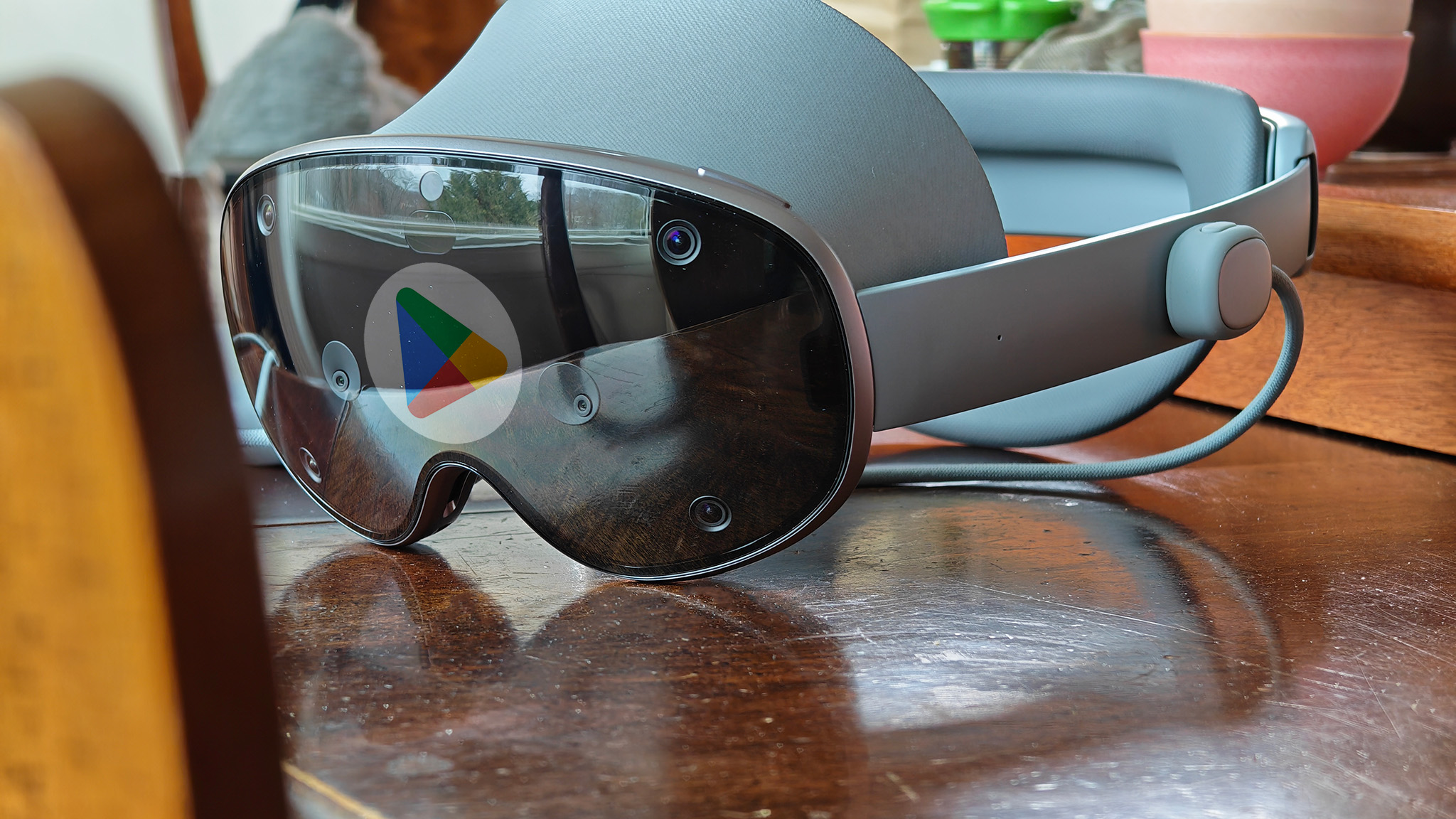Google opens access to Search Labs to further test its generative AI
Getting you the information you need to know quickly.
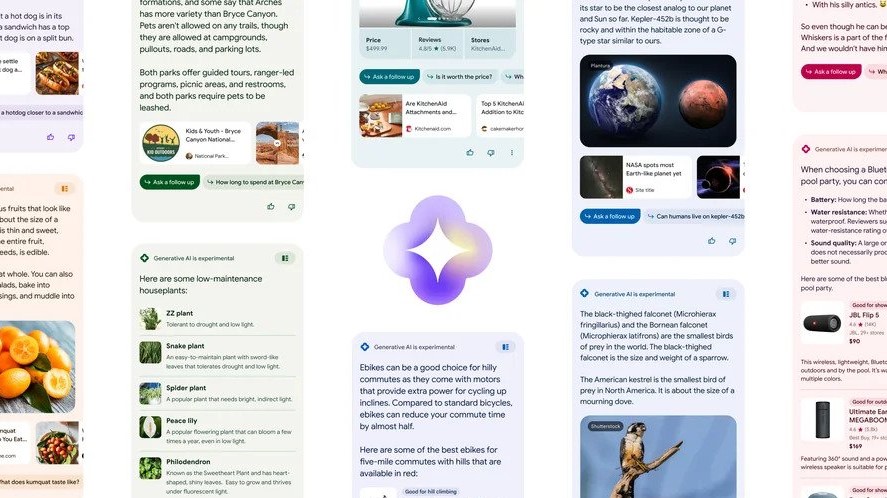
Get the latest news from Android Central, your trusted companion in the world of Android
You are now subscribed
Your newsletter sign-up was successful
What you need to know
- Google opens access to Search Labs for early U.S. testers.
- Search's generative AI gives people quick bits of the most important information to get them up to speed quicker.
- Users can ask the AI software a follow-up question to a subject which births a more conversational experience.
Google is beginning to open access to its Search Labs experimental program. Google stated in a Keyword blog post that those interested in becoming early access testers can begin signing up for Search Labs. Those in the U.S. need only tap or click on the Labs icon in the Google app on Android and iOS (it looks like a beaker) or on desktop Chrome browsers to sign up. If you've been accepted, Google states you will be notified via email.
Search has already been teased to provide a generative AI-powered experience that aims to "take some of the work out of searching." The Mountain View-based company states its generative AI software in Search can help users understand a complicated subject, and get up to speed with one they know little about, faster. This comes into play through Search's new AI-powered snapshot that will break down larger topics into bite-sized pieces so you're only seeing what matters to the subject for a more educated decision.
Beneath these new snapshots, Google has included an "ask a follow-up question" button. In addition, there will be a few suggested "next steps" which will help push users into a more conversational experience with Google's AI software.
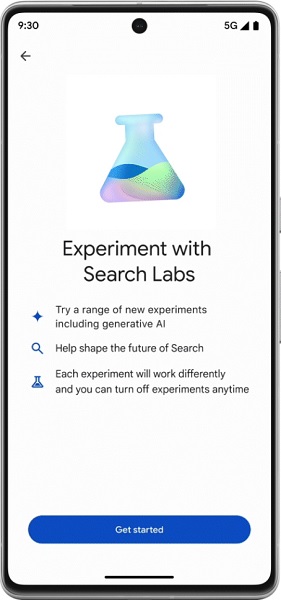
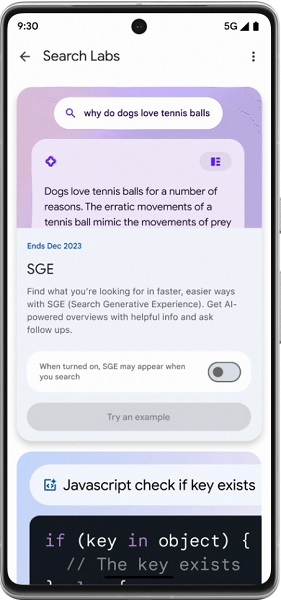
In another example of Google Search's generative AI doing the heavy lifting, the company offers an example that reads, "How to get an old coffee stain out of a wool sweater?" A user with this sort of question is looking for tips for removing a coffee stain to which Search's AI software will scour the internet for the most relevant tips. After doing so, Search will display bits of key information on what you need to know first before going into some alternative methods.
Following that, users will have the chance to view and play with any of the aforementioned additional options Search has also returned.
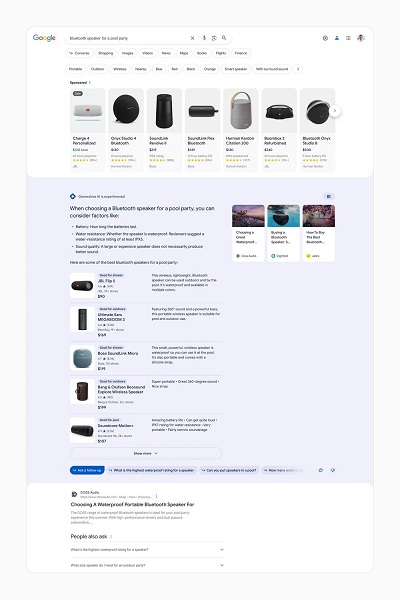
Lastly, Search's generative AI software is even willing to help out on those online shopping days. Google used the example of a user searching for a "Bluetooth speaker for a pool party." For a query like this, the experimental generative AI will display information such as what sort of factors you should be wary of, considering this speaker will be around water. Water resistance plays a part but so does its sound quality and battery life.
After this, Search lists a few products that might fit the bill along with the option of asking a follow-up question or some suggested questions for additional information.
Get the latest news from Android Central, your trusted companion in the world of Android
After the Google I/O 2023 event, where the company showcased much of its upcoming work in the generative AI space, we got a good look at this new experimental software for Search. Google is hoping that since the context of your query is continuously carried over from question to question, it'll make learning and exploring a bit more enjoyable. You'll also be able to hop over and gain new perspectives when exploring different topics.
Furthermore, one of the topics Google talked about was being "responsible" with its AI efforts. Generative AI isn't always 100% accurate and Google knows it which is why the company stated it will take a "responsible and deliberate approach" while updating its models with a "high bar of quality."

Nickolas is always excited about tech and getting his hands on it. Writing for him can vary from delivering the latest tech story to scribbling in his journal. When Nickolas isn't hitting a story, he's often grinding away at a game or chilling with a book in his hand.
